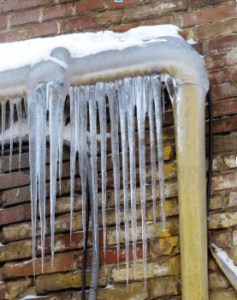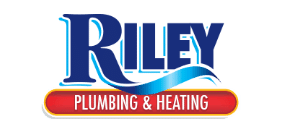Fighting the Freeze: How to Keep Your Pipes From Bursting This Winter

During each cold season, we go to great lengths to prepare, or “winterize,” our cars, homes, boats, and more. But they’re not the only places that could use some extra TLC to survive the wintertime. The harsh and freezing temperatures of the season can also cause your plumbing pipes to freeze, and possibly even burst. This can not only cause water damage and flooding to your home, but be a significant disruption to you and your family’s lives.
At Riley Plumbing & Heating, we understand that it’s not just you who needs to be warm and toasty this winter, but it’s also the systems in your home that you rely on, like your plumbing. With a few preventative measures, you can safeguard your plumbing from the freezing temperatures and ensure you fully eliminate the threat of frozen pipes and other cold-weather hazards to your system.
Location Is Key
Because of their location in and around the home, certain pipes may be more prone to freezing than others. And it might not be the ones you suspect. For instance, exposed pipes in your basement aren’t typically in danger of freezing because they’re near a heat source. Conversely, plumbing pipes in places that aren’t heated, such as the attic, garage, and crawl spaces, can be at risk for freezing. Other pipes susceptible to risk are located in exterior walls, and any located outside.
Bundle Up
If your pipes are easily accessible, consider wrapping them in foam rubber or fiberglass sleeves. This installation can be purchased at a hardware store, and is pre-cut so it fits easily over the pipes. You can also use additional insulation to the surrounding walls and ceilings to keep the pipes warm.
Open Sesame
For pipes located inside cabinets, it’s a good idea to open the cabinet doors when the temperature drops. This allows some of the ambient heat in the house to warm them and prevent freezing.
Drip, Drip, Drip
When a pipe freezes, it’s actually the pressure created between the faucet and the blocked area that causes it to burst. If you’re concerned that your pipe might freeze, allowing it to drip slightly can prevent this pressure and keep your pipe from bursting.
Seal the Deal
By caulking any cracks or holes near pipes, you can maintain in warmer temperatures inside, while keeping the cold air where it should be—outdoors.
Fly, Fly Away
If you’re a snowbird who’s heading south for the winter, there are a few additional things to consider. Depending on how long you’ll be away for, you may want to turn off the water supply. Additionally, make sure to turn the heat down, but not all the way off. Setting your home’s thermostat to 55 degrees Fahrenheit is generally warm enough to keep your pipes from freezing, and give you peace of mind during your vacation.
By following these simple and straightforward guidelines, you can prevent your pipes from freezing and bursting, protect your home from potential flood damage, and keep your family warm and toasty all winter long.
For more information on winterizing your plumbing system, or for our other services, call Riley Plumbing & Heating today at 860-225-1534!


Recent Comments